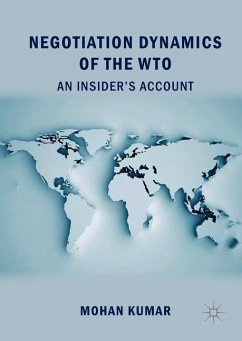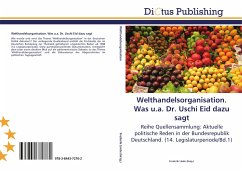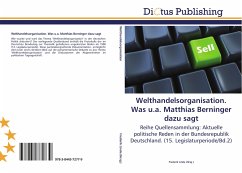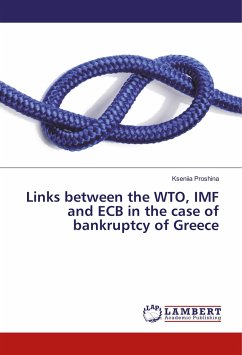
Change of Power in the WTO: Reality or Illusion?
A study of developing countries' bargaining power in the GATT/WTO negotiations from the Tokyo Round to the Doha Round
Versandkostenfrei!
Versandfertig in 6-10 Tagen
32,99 €
inkl. MwSt.

PAYBACK Punkte
16 °P sammeln!
While the multilateral trade agenda traditionally has been dominated by the industrialised countries' interests, the last decade has shown signs of a possible change in power relations in favour of developing countries, with the collapse of the WTO Ministerial Conference in Seattle in 1999 being one of the most cited examples. By providing a broad overview of the evolution of developing countries' bargaining power in the Tokyo Round, Uruguay Round and the ongoing Doha Round, this study documents and analyses whether the developing countries actually have increased their bargaining power in the...
While the multilateral trade agenda traditionally has been dominated by the industrialised countries' interests, the last decade has shown signs of a possible change in power relations in favour of developing countries, with the collapse of the WTO Ministerial Conference in Seattle in 1999 being one of the most cited examples. By providing a broad overview of the evolution of developing countries' bargaining power in the Tokyo Round, Uruguay Round and the ongoing Doha Round, this study documents and analyses whether the developing countries actually have increased their bargaining power in the GATT/WTO negotiations, and if so, how this change can be explained. The current stalemate of the Doha Round clearly exposes the need for a better understanding of the bargaining dynamics within the WTO. It also calls for new approaches among government representatives, the WTO Secretariat, NGOs and academics in order to break the stalemate and avoid further losses to world trade, severely hampering poverty reduction and MDG achievement. The findings of this study contribute to an increased understanding of the tools and ambitions needed for this to materialise.












